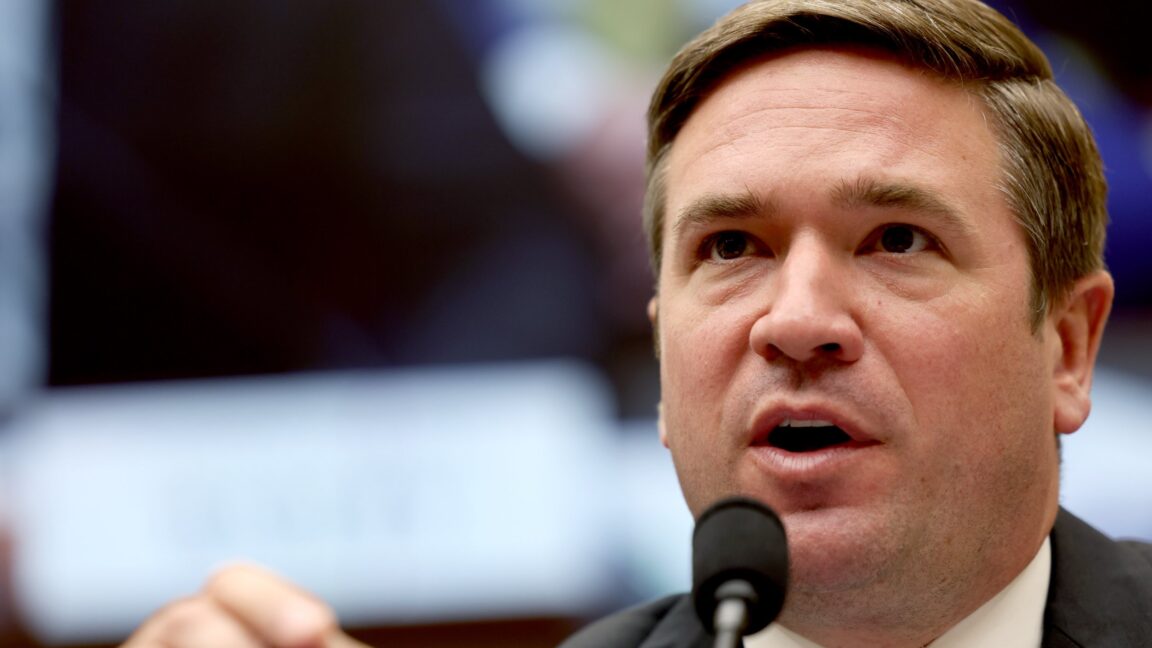Missouri Attorney General Andrew Bailey said he is investigating Google, claiming that the tech giant censors conservative speech and manipulated search results about Donald Trump.
"BREAKING: I am launching an investigation into Google—the biggest search engine in America—for censoring conservative speech during the most consequential election in our nation's history. Google is waging war on the democratic process. It's time to fight back," Bailey wrote on X, the social network owned by notable Trump supporter Elon Musk.
The New York Post quoted a Bailey spokesperson saying that "evidence has come to light that Google is deemphasizing conservative speech or content—such as putting conservative reporting on Page 11 rather than Page 1—by manipulating search results." The spokesperson said Google "has an obligation to consumers to utilize fair business practice" and that "we will be subpoenaing information on Google's algorithms and other systems to determine whether they are censoring conservative speech."
Bailey told Fox Business that "we have reason to believe that Google is manipulating their search results to deemphasize information about the Trump campaign prior to Election Day."
Google denied Bailey's claims about its search results.
"These claims are totally false," Google said in a statement provided to Ars today. "Independent studies have confirmed that Google Search is nonpartisan. Search serves all our users, and our business rests on showing useful information to everyone—no matter what their political beliefs are."
Trump wants prosecution of Google
Bailey previously launched an investigation into Media Matters for America, a nonprofit that was sued by X after publishing an article showing that Musk's company placed advertisements next to pro-Nazi posts. Bailey issued an investigative demand, but a federal judge ordered him to halt the Media Matters probe because it appeared the state attorney general was taking retaliatory actions designed to chill speech.
Trump last month said he will seek prosecution of Google if he wins the election.
"It has been determined that Google has illegally used a system of only revealing and displaying bad stories about Donald J. Trump, some made up for this purpose while, at the same time, only revealing good stories about Comrade Kamala Harris," Trump wrote on his social network Truth Social. "This is an ILLEGAL ACTIVITY, and hopefully the Justice Department will criminally prosecute them for this blatant Interference of Elections. If not, and subject to the Laws of our Country, I will request their prosecution, at the maximum levels, when I win the Election, and become President of the United States!"
Trump was referring to claims by the Media Research Center, a conservative group that alleged Google "very clearly pads its search results about political candidates with leftist legacy news articles, many of which are hostile to Republicans and either neutral or favorable toward Democrats." The group claimed that readers "have to sift through the biased news before they even see the organic results of their searches, let alone a candidate's website."
Google denied Trump claims
At the time, Google responded that "both campaign websites consistently appear at the top of Search for relevant and common search queries." Google said the Media Research Center "report looked at a single rare search term on a single day a few weeks ago, and even for that search, both candidates' websites ranked in the top results on Google."
Republican government officials have been blasting Google for supposedly biased search results for years. Republican members of Congress grilled Google CEO Sundar Pichai on the topic at a House Judiciary Committee hearing in December 2018.
In 2022, the Republican National Committee sued Google with claims that it intentionally used Gmail's spam filter to suppress Republicans' fundraising emails. A federal judge dismissed the lawsuit in August 2023, ruling that Google correctly argued that the RNC claims were barred by Section 230 of the Communications Decency Act.
In January 2023, the Federal Election Commission rejected a related RNC complaint that alleged Gmail's spam filtering amounted to "illegal in-kind contributions made by Google to Biden For President and other Democrat candidates." The federal commission found "no reason to believe" that Google made prohibited in-kind corporate contributions and said a study cited by Republicans "does not make any findings as to the reasons why Google's spam filter appears to treat Republican and Democratic campaign emails differently."
First Amendment doesn’t cover private forums
In 2020, a US appeals court wrote that the Google-owned YouTube is not subject to free-speech requirements under the First Amendment. "Despite YouTube's ubiquity and its role as a public-facing platform, it remains a private forum, not a public forum subject to judicial scrutiny under the First Amendment," the US Court of Appeals for the 9th Circuit said.
The US Constitution's free speech clause imposes requirements on the government, not private companies—except in limited circumstances in which a private entity qualifies as a state actor.
Many Republican government officials want more authority to regulate how social media firms moderate user-submitted content. Republican officials from 20 states, including 19 state attorneys general, argued in a January 2024 Supreme Court brief that they "have authority to prohibit mass communication platforms from censoring speech."
The brief was filed in support of Texas and Florida laws that attempt to regulate social networks. In July, the Supreme Court avoided making a final decision on tech-industry challenges to the state laws but wrote that the Texas law "is unlikely to withstand First Amendment scrutiny." The Computer & Communications Industry Association said it was pleased by the ruling because it "mak[es] clear that a State may not interfere with private actors' speech."


